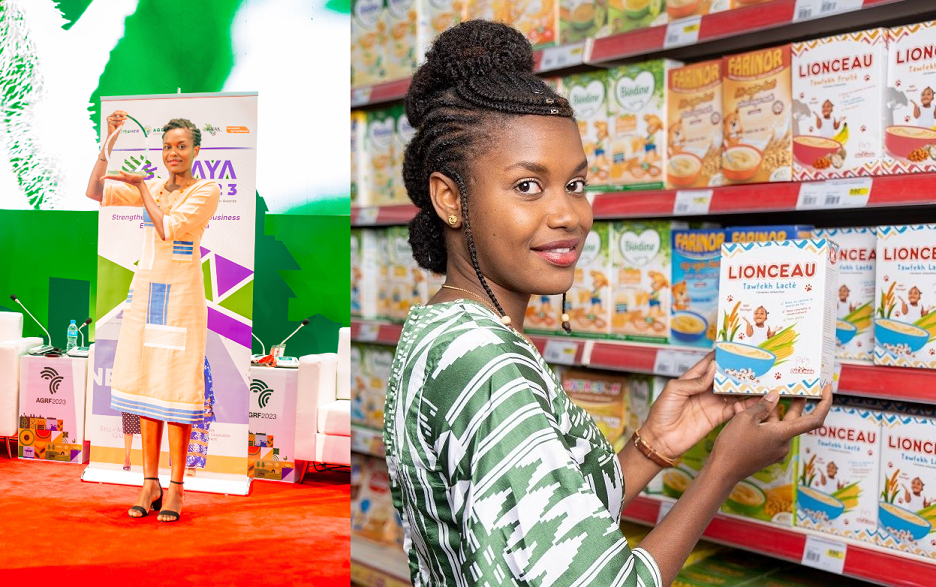On 6 September, the Alliance for a Green Revolution in Africa (AGRA) announced the winners of the 2023 Women Agripreneurs of the Year Awards (WAYA2023), at the African Food Systems Forum (AGRF2023) being held in Dar es Salaam, Tanzania, until 8 September.
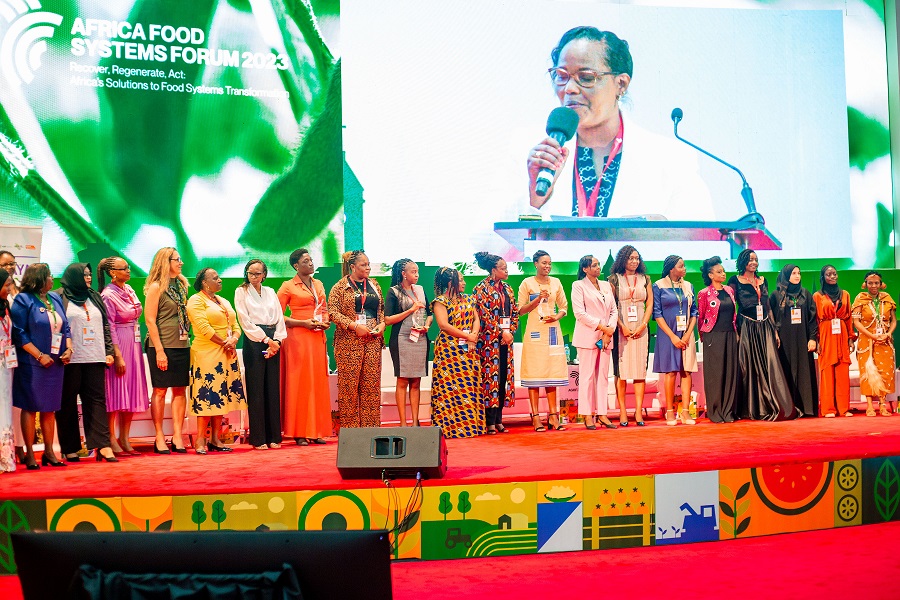
Now in their third year, the WAYA awards recognise African agripreneurs who have demonstrated outstanding innovation and commercial excellence in agricultural value chains. To be eligible for WAYA, businesses must operate in an agricultural or agri-food value chain, be a legal entity registered in an African Union member country, and be at least 51% owned and managed by one or more women citizens from one of the 55 African countries. The awards aim to give visibility to successful women, serve as positive role models, stimulate innovation and foster ambition among African agripreneurs.
This year’s winners, from Senegal, Nigeria, Kenya and Ghana, won their prizes in the following categories: high added value business, innovative woman in the field of agricultural technologies, young woman agripreneur (rising star) and grand prize.
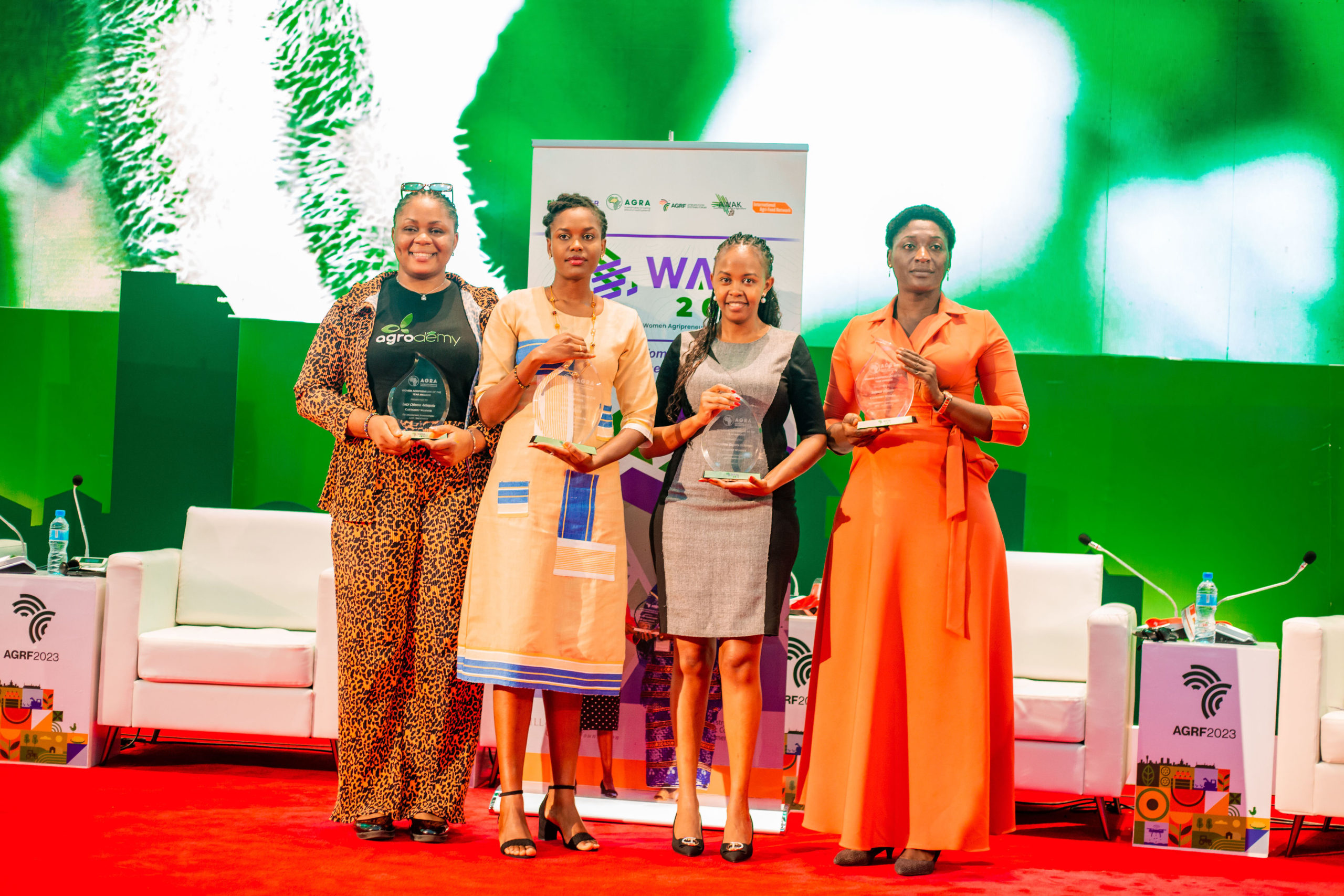
They received a total of $85,000 in grants. The four winners were selected from 1,340 applicants from 42 African countries.
Senegalese entrepreneur Siny Samba, 31, is the winner of the “Grand Prix” category, which rewards the woman-owned agricultural business that presents the best innovations in the agri-food sector, across all categories.
Lucy Chioma Aniagolu from Nigeria is the winner of the “Young Female Agripreneur (Rising Star)” category, which rewards high-potential young women (under 35) who demonstrate innovation and leadership in agribusiness. She is the founder of Agrodemy, an agritech company that solves post-harvest losses through education and market access.
The “Woman innovator in the field of agricultural technologies” prize was won by Kenyan Maryanne Ruguru Gichanga. This prize rewards women agripreneurs who champion technological progress in the agro-industry. The Kenyan is the director of AgriTech Analytics, a data-driven company that helps smallholders monitor their farms and crops using an online platform and mobile application.
Finally, the “High Added Value Business” prize was awarded to Bernice Dapaah from Ghana. This award recognises women-owned agri-food businesses that increase the economic value and/or consumer appeal of agricultural products. The Ghanaian is CEO of Bright Generation Community Foundation-Ghana Bamboo Bikes Initiative.
Nutritious baby food

Senegalese entrepreneur Siny Samba is the founder of “Le Lionceau”, a company that produces nutrient-rich baby food adapted to local tastes, using 100% local cereals, vegetables and fruit.
In 2017, Siny Samba, a food processing engineer, returned to Senegal after working for a baby food company in France. She had studied infant nutrition and noticed the distinct lack of diversity in baby food on the shelves of Senegalese grocery shops. She also observed that small-scale farmers often found it difficult to sell their produce, leading to crop losses. “I said to myself, ‘Why not try to minimise these losses? Another need arose when she started talking to mothers about how they fed their babies. “One woman told me that her child never drank water. She only gave him soft drinks and fruit juice”, explained Siny Samba.
She set up Le Lionceau to widen the choice on shop shelves with nutritious, locally sourced baby food based on local recipes, while at the same time tackling some of the challenges facing small-scale farming in Senegal.
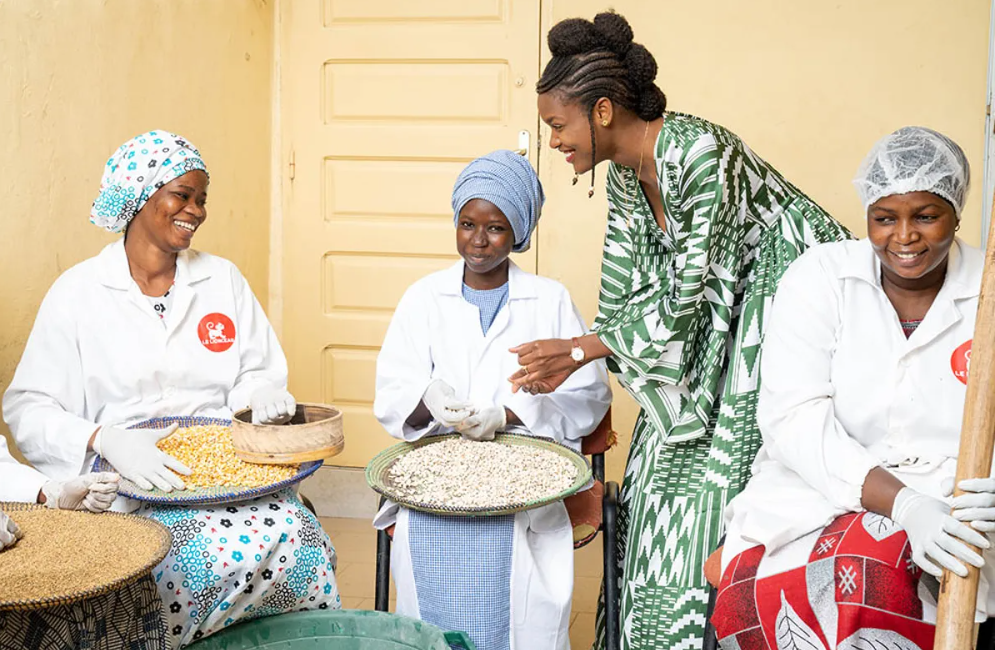
Improving the health of babies
To tackle the problem of poor infant nutrition, Le Lionceau organises educational workshops to help parents understand nutrition and improve their babies’ health. “We travel to urban and rural areas to train and raise awareness about the importance of the first 1,000 days, including the importance of breastfeeding and how mothers can use local crops to prepare food for their babies and themselves,” explains Siny Samba.
Working with farmers, the company transforms what would otherwise have been wasted into a valuable food product. “In mango fields, 60% of mangoes would usually be wasted – they would not be bought or would just sit there,” says the entrepreneur.
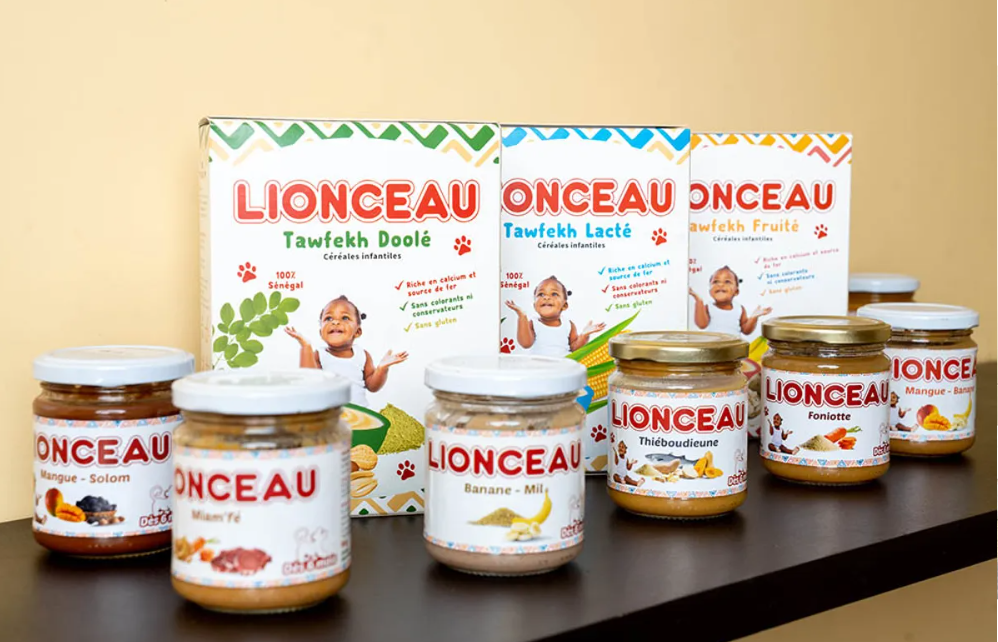
Working with cooperatives
Le Lionceau employs 25 people and buys crops from cooperatives representing more than 5,000 farmers. “We have an impact by working with farmers. They receive more income and a stable income because they know that we will buy every month. We need tonnes of cereals”.
The company is also empowering more than 500 local women, including participants in nutrition education workshops and women’s groups that are part of Le Lionceau’s supply chain. “We teach them how to process local crops to preserve quality and produce a final product that meets our baby food standards.
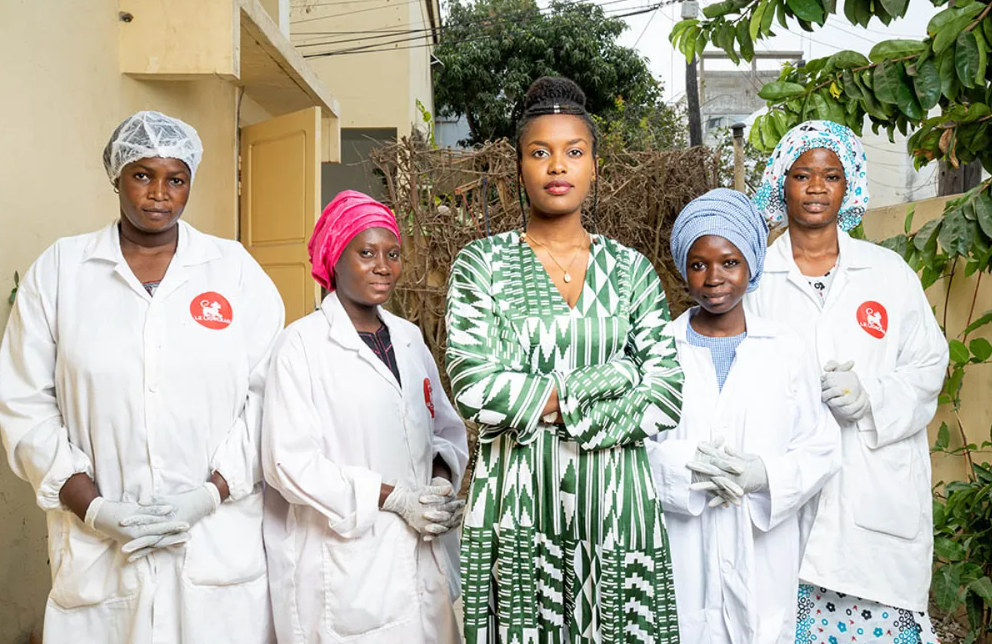
Feeding millions of babies
Lionceau’s high-quality baby food has fed 20,000 children to date, and Siny Samba aims to feed millions more. In West Africa alone, 320 babies are born every year. “The baby food market is huge. Today, we’re in Senegal, but people in Côte d’Ivoire and Ghana have contacted us because they want our product. The company plans to expand when it is able to increase its production capacity. “For next year, our aim is to have our own factory and to increase production so that we can satisfy the local market in Senegal, but also to start exporting to neighbouring countries”.
Le Lionceau also plans to expand its product range to work with NGOs and governments in the food aid market by developing more affordable and accessible locally sourced baby food.
